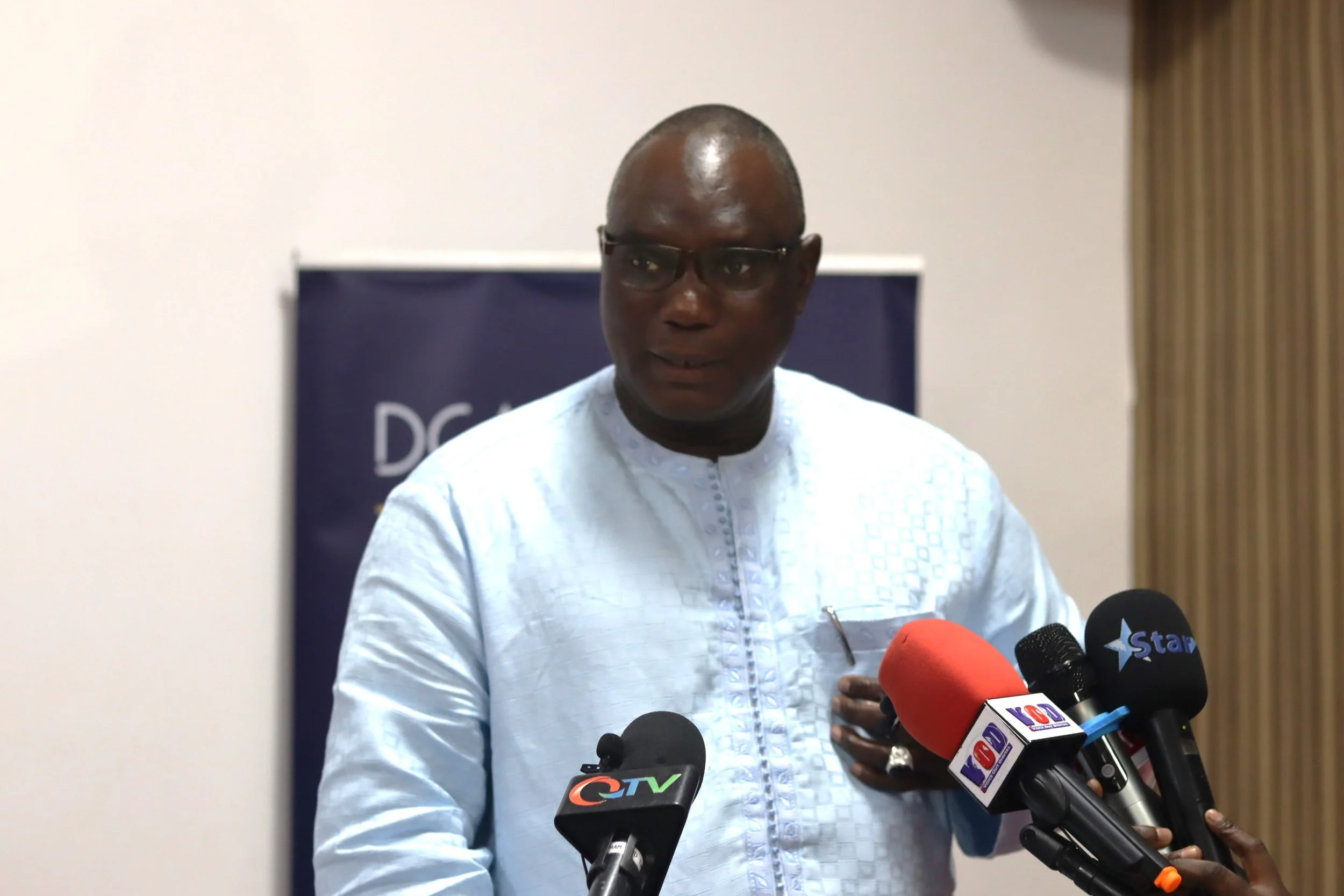DCAF Supports the Development of SOP to Enhance National Security Coordination in The Gambia
Group Picture (c) DCAF
By the Geneva Centre for Security Sector Governance (DCAF)
The Geneva Centre for Security Sector Governance (DCAF) in collaboration with the Office of National Security (ONS) has launched a five-day workshop to develop a Standard Operating Procedure (SOP) for the recently developed National Security Sector Coordination Model (NSSCM). This initiative, which aims to enhance collaboration among security institutions, is funded by the European Union as part of the broader project supporting Security Sector Reform (SSR) in The Gambia.
The workshop, which is being held from 10 to 14 September 2024, at the Metzy Residence Hotel, is a key step in operationalising the NSSCM, which was developed by the ONS with DCAF’s assistance. The NSSCM sets out critical security approaches for tasking and coordinating security operations and enhancing intelligence sharing among security institutions. The SOP will provide standardized response guidelines, outlining roles, responsibilities, and command mechanisms to foster inter-agency collaboration.
During the opening ceremony, attended by security heads, including the Minister of Defence, Hon. Sering Modou Njie, and the Minister of Interior, Hon. Abdoulie Sanyang, the significance of this workshop was emphasized.
Defence Minister (c) DCAF
Speaking at the opening ceremony, The Honourable Minister of Defence, Sering Modou Njie, emphasized the importance of this initiative, noting that before 2017, The Gambia’s security structure lacked formal mechanisms for collaboration among security institutions. “Governance in the security sector was fragmented, and decisions were made in silos,” said Minister Njie. "The development of the NSSCM is a critical step towards building a more coordinated and effective security apparatus."
He highlighted the need for "dynamic and robust strategies" to neutralize modern security threats. He further stated, “The unpredictable nature of 21st-century threats to national security demands a mix of kinetic and non-kinetic approaches, involving a whole-of-government and whole-of-society effort to ensure safety and security”.
In delivering his statement, the National Security Adviser, Abubakar Suleiman Jeng noted that the threats to National Security are multi-dimensional and multi-faceted which requires a holistic approach to mitigate. He furthered that the National Security Sector Coordination Model arose from the need to provide a framework that will ensure the protection of The Gambia and provide optimal safety and security delivery to citizens and residents.
DCAF’s commitment to supporting the Gambia’s SSR process is exemplified through its numerous contributions in support of the Security Institutions, such as the development of the NSSCM, the first-ever Police Doctrine, a legal database, and the Gambian Internal Security Policy (ISP). DCAF also provides capacity-building support to various security institutions, including the Gambia Police Force (GPF) and the Gambia Immigration Department (GID), under different projects funded by international partners, notably the EU and Switzerland.
DCAF Banjul Head and National Security Adviser (c) DCAF
Speaking at the event, DCAF Banjul’s Head of Office expressed profound gratitude to the EU for its financial support and the Government of The Gambia for entrusting DCAF with the responsibility of facilitating such a vital aspect of the SSR. He noted, “This workshop is a testament to the EU and DCAF’s shared commitment to improving security, migration, and border management in The Gambia through effective coordination and collaboration.”
The SOP, when completed, will provide clear guidelines on intelligence sharing, crisis management, interagency collaboration, and resource deployment. It will serve as a critical tool to empower decision-makers with the information needed for swift and coordinated responses to national security threats. As Hon. Sering Modou Njie remarked, “This document will not only stand the test of time but could be used as a blueprint by other countries”
Participants at the workshop, including representatives from security institutions, civil society organizations, and the Office of National Security, are expected to play a critical role in shaping the SOP. Their contributions will ensure that the document reflects the realities of national security challenges in The Gambia and enhances the overall security architecture of the country.
With the completion of the SOP, The Gambia will take another significant step towards achieving an efficient and accountable security sector that meets the evolving needs of its citizens and visitors.
Delegates at Workshop (c) DCAF




